Theology of History
 |
 |
 |
 |
 |
 |
 |
Egalitarianism - IV
In a Materialist Age,
the Soul
Is Underestimated
Today we continue demonstrating how the general tendency of our days is to level everything – in every field and aspect of life. (Note: Prof. Plinio gave this series of classes in 1957; nowadays we see how the egalitarianism in each of the fields he points out has increased and come to dominate almost completely).
Emphasizing differences in souls
In times past persons liked to emphasize the differences between souls; they would choose persons with very different moral and intellectual characteristics and draw parallels between them. I remember from my childhood compositions to determine who was the greatest – the poet Camões or prose master Vieira.
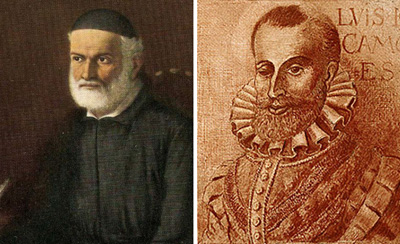 There was a certain pleasure taken in comparing the two geniuses, enumerating their exceptional qualities and drawing parallels to establish which one was the greater. This exercise for a while became a veritable mania – to such an extent that the Church had to forbid such parallels being made between the Saints.
There was a certain pleasure taken in comparing the two geniuses, enumerating their exceptional qualities and drawing parallels to establish which one was the greater. This exercise for a while became a veritable mania – to such an extent that the Church had to forbid such parallels being made between the Saints.
It is interesting to see this inclination of spirit that took delight in looking for differences and making comparisons. If there is one thing to which the modern spirit is not inclined, it is precisely this – to compare. For comparing is a function that presupposes the existence of differences. To compare in order to judge is something little suited to the modern mind.
A delightful theme in literature used to be to make comparisons, such as to analyze the differences between Turenne and Condé: Condé, the lightning-fast general, who makes no plans, but sees the battlefield, attacks and destroys. Turenne, the great chess player, who devises a plan and conquers a city. Or Aristotle and Plato, Raphael and Michelangelo, etc., etc. These are fascinating themes, in which persons took pleasure in praising souls, analyzing them and celebrating their greatness and exceptionality.
In an age of materialism the soul is underestimated
In this epoch of materialism, the soul, which is superior to the body, is underestimated. Anything that has to do with the soul is treated only in psychiatry: that is, we only consider the mind when it is sick, and then we leave psychiatrists to deal with it. Even the sound mind is a presumed to be sick when it comes under these lens.
The valorization of the spiritual factor is reduced to a minimum, leveling it with matter. This leveling occurs also among souls: The exceptional beauties that exist in each one are no longer noted.
Differences in sex, age set aside
Another thing being set aside are certain inequalities that exist in nature, as in the sexes. St. Thomas Aquinas demonstrates very well that these inequalities would have to exist even in Paradise before original sin. There must be inequality between the sexes to have the perpetuation of the species.
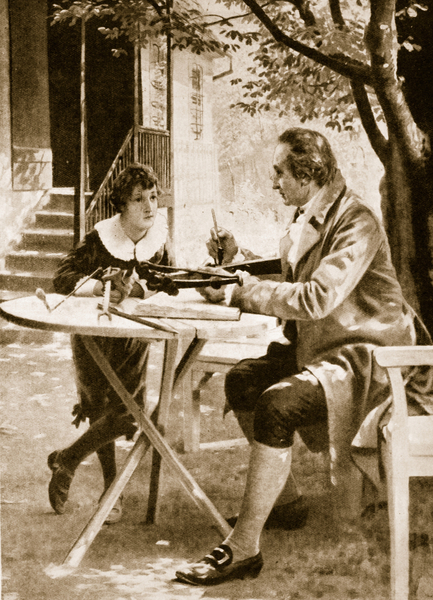 There is also the differences of age. St. Thomas analyzes the subject and concludes this would be so since once some are born from others, they would have to be younger. Father and son, with their proper inequalities would also exist in Paradise.
There is also the differences of age. St. Thomas analyzes the subject and concludes this would be so since once some are born from others, they would have to be younger. Father and son, with their proper inequalities would also exist in Paradise.
Today everything is moving toward dismissing these differences among us. It cannot be denied that there are inequalities of sex, but everything tends toward leveling the sexes. It cannot be denied that there is inequality of age, but everything is trying to present this inequality without consequences, not stressing any inequality among men.
It is evident that there is inequality between father and son. But the distinctions and inequalities that exist in these relationships are what is being discarded. On the contrary, everything is equal, equal, equal. The woman is equal to the man, the son to the father, the youth to the elderly. As we see, everything is tending toward underestimating what is higher in such relationships.
The body overestimated, intelligence undervalued
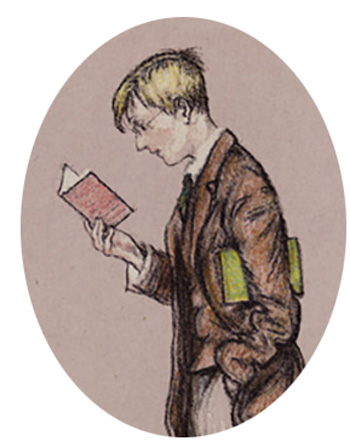 Another interesting point for the argument is the fact that today the things of the body are increasingly overestimated: Sports, health, food are constantly emphasized. There is little praise for intelligence and much praise for physical capacities or psychophysical abilities.
Another interesting point for the argument is the fact that today the things of the body are increasingly overestimated: Sports, health, food are constantly emphasized. There is little praise for intelligence and much praise for physical capacities or psychophysical abilities.
We have not fallen so low as to present a boy, for example, only as being very handsome, muscular, etc; he is noted for his amiability: the "nice" boy or girl. However, he is no longer praised for intelligence, although being likable involves certain mental attributes.
Today the noble parts are being debased. For example, to have the idea that the head is more noble than the feet is an idea that is already disappearing. There was a time when talking about feet was a kind of nonsensical thing. Today the foot is on par with the head, which is not to say that the head has become completely equal to the foot.
In the old days, one blushed, today one turns red
In the past a person had cheeks, today there is just the face. It was said: “Her cheeks blushed.” Today it is: “Her face turned red.” To say “her cheeks blushed” refers to a mental phenomenon that has a physical consequence. To say “her face turned red” is a physical fact that could also occur in the hand. It is a simple physical reaction.
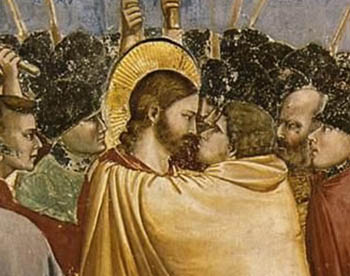 In ancient times, certain parts of man were considered in particular ways, e.g. the forehead. A short forehead was reputed to a base or low spirit. When Giotto painted Judas, he gave him a short forehead. A broad high forehead is something that indicates vast horizons.
In ancient times, certain parts of man were considered in particular ways, e.g. the forehead. A short forehead was reputed to a base or low spirit. When Giotto painted Judas, he gave him a short forehead. A broad high forehead is something that indicates vast horizons.
Such things are not spoken about today. The forehead is simply a part of the skull, a bone identified in an anatomy class. It has lost all its moral, symbolic and spiritual aspects. It is just one factor in the covering that hides the brain, which is one of the most intense parts of the nervous system.
Contempt for intellectual work
Contempt for intellectual work is something prodigious. I will give an example. Some time ago there was talk about increasing the salaries of the professors at St. Benedict’s University. Then someone from the Chancellor's office said that it was not worthwhile.
 Another person argued: “But look how much more the professors of industrial engineering make.”
Another person argued: “But look how much more the professors of industrial engineering make.”
He replied: “Work is like that – you pay more when there are few professionals and a strong demand. With many professionals and a short demand, less is paid. Any professor who applies here will get a position in the Philosophy Faculty. However, a position in the Industrial Engineering Faculty is difficult to obtain. Therefore, one must pay more dearly.”
Note the contempt for the intellectual work and the valorization of the technical work.
The teachers pay is less than the gravedigger's
In one municipality in the interior of São Paulo, the list of salaries of its employees was published. The most poorly paid person was the school teacher. Just above it on the list was the gravedigger.
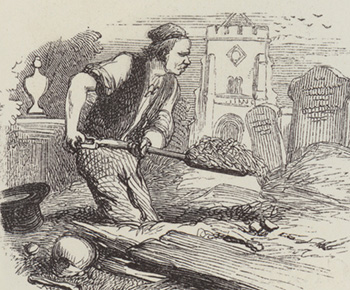 This expresses a very characteristic order of things: The zeal of the government’s labor laws is turned to protect the manual worker. The intellectual worker, reputed as not needing any real protection, rarely benefits from wage increases and is being crushed by the rise of a less intellectual bourgeoisie and a semi-barbarian proletariat.
This expresses a very characteristic order of things: The zeal of the government’s labor laws is turned to protect the manual worker. The intellectual worker, reputed as not needing any real protection, rarely benefits from wage increases and is being crushed by the rise of a less intellectual bourgeoisie and a semi-barbarian proletariat.
While conversing with a lady about another person, she made a statement that I found very accurate: “Mr. X shone in the days when intelligence was prestigious.”
Admiration for mechanics
The admiration of the general public is directed toward professions of a lower character, and in the hierarchical order of values professions of a higher character are underestimated.
For example, in the order of possibilities, the highest profession would be to teach theology, and the less intellectual and lower profession would be the mechanic. Which of the two receives more public understanding and sympathy today?
Continued

Emphasizing differences in souls
In times past persons liked to emphasize the differences between souls; they would choose persons with very different moral and intellectual characteristics and draw parallels between them. I remember from my childhood compositions to determine who was the greatest – the poet Camões or prose master Vieira.

Analyzing differences between great men like Vieira & Camões used to be a popular exercise of the mind
It is interesting to see this inclination of spirit that took delight in looking for differences and making comparisons. If there is one thing to which the modern spirit is not inclined, it is precisely this – to compare. For comparing is a function that presupposes the existence of differences. To compare in order to judge is something little suited to the modern mind.
A delightful theme in literature used to be to make comparisons, such as to analyze the differences between Turenne and Condé: Condé, the lightning-fast general, who makes no plans, but sees the battlefield, attacks and destroys. Turenne, the great chess player, who devises a plan and conquers a city. Or Aristotle and Plato, Raphael and Michelangelo, etc., etc. These are fascinating themes, in which persons took pleasure in praising souls, analyzing them and celebrating their greatness and exceptionality.
In an age of materialism the soul is underestimated
In this epoch of materialism, the soul, which is superior to the body, is underestimated. Anything that has to do with the soul is treated only in psychiatry: that is, we only consider the mind when it is sick, and then we leave psychiatrists to deal with it. Even the sound mind is a presumed to be sick when it comes under these lens.
The valorization of the spiritual factor is reduced to a minimum, leveling it with matter. This leveling occurs also among souls: The exceptional beauties that exist in each one are no longer noted.
Differences in sex, age set aside
Another thing being set aside are certain inequalities that exist in nature, as in the sexes. St. Thomas Aquinas demonstrates very well that these inequalities would have to exist even in Paradise before original sin. There must be inequality between the sexes to have the perpetuation of the species.

A son respectfully learns from his father & imitates his dignified way of being
Today everything is moving toward dismissing these differences among us. It cannot be denied that there are inequalities of sex, but everything tends toward leveling the sexes. It cannot be denied that there is inequality of age, but everything is trying to present this inequality without consequences, not stressing any inequality among men.
It is evident that there is inequality between father and son. But the distinctions and inequalities that exist in these relationships are what is being discarded. On the contrary, everything is equal, equal, equal. The woman is equal to the man, the son to the father, the youth to the elderly. As we see, everything is tending toward underestimating what is higher in such relationships.
The body overestimated, intelligence undervalued

The intellectual came to be presented
as awkward or a misfit
We have not fallen so low as to present a boy, for example, only as being very handsome, muscular, etc; he is noted for his amiability: the "nice" boy or girl. However, he is no longer praised for intelligence, although being likable involves certain mental attributes.
Today the noble parts are being debased. For example, to have the idea that the head is more noble than the feet is an idea that is already disappearing. There was a time when talking about feet was a kind of nonsensical thing. Today the foot is on par with the head, which is not to say that the head has become completely equal to the foot.
In the old days, one blushed, today one turns red
In the past a person had cheeks, today there is just the face. It was said: “Her cheeks blushed.” Today it is: “Her face turned red.” To say “her cheeks blushed” refers to a mental phenomenon that has a physical consequence. To say “her face turned red” is a physical fact that could also occur in the hand. It is a simple physical reaction.

Giotto painted Judas with a low forehead, a sign of his character
Such things are not spoken about today. The forehead is simply a part of the skull, a bone identified in an anatomy class. It has lost all its moral, symbolic and spiritual aspects. It is just one factor in the covering that hides the brain, which is one of the most intense parts of the nervous system.
Contempt for intellectual work
Contempt for intellectual work is something prodigious. I will give an example. Some time ago there was talk about increasing the salaries of the professors at St. Benedict’s University. Then someone from the Chancellor's office said that it was not worthwhile.

The teacher’s work is undervalued;
many of the best leave to seek higher paying work
He replied: “Work is like that – you pay more when there are few professionals and a strong demand. With many professionals and a short demand, less is paid. Any professor who applies here will get a position in the Philosophy Faculty. However, a position in the Industrial Engineering Faculty is difficult to obtain. Therefore, one must pay more dearly.”
Note the contempt for the intellectual work and the valorization of the technical work.
The teachers pay is less than the gravedigger's
In one municipality in the interior of São Paulo, the list of salaries of its employees was published. The most poorly paid person was the school teacher. Just above it on the list was the gravedigger.

Even the grave digger received more than the teacher
While conversing with a lady about another person, she made a statement that I found very accurate: “Mr. X shone in the days when intelligence was prestigious.”
Admiration for mechanics
The admiration of the general public is directed toward professions of a lower character, and in the hierarchical order of values professions of a higher character are underestimated.
For example, in the order of possibilities, the highest profession would be to teach theology, and the less intellectual and lower profession would be the mechanic. Which of the two receives more public understanding and sympathy today?
Continued
Posted November 5, 2025

______________________
______________________





